In honor of its 30th anniversary, our writers reflect on what “Jurassic Park” has meant to them and why it’s an essential cinematic treasure.
“Gee, the lack of humility before nature that’s being displayed here, uh… staggers me.”
Intro by Morbidly Beautiful Editor Stephanie Malone
Widely considered one of the greatest blockbusters ever made, there’s no denying that Jurassic Park was a major milestone in film history.
The 1993 film directed by Steven Spielberg was based on the popular 1990 Michael Crichton novel of the same name. Before the novel was even published, four studios had already put in bids for its film rights. But it was Universal Pictures and Spielberg that won the bidding war at a cost of $1.5 million.
Crichton was hired for an additional $500,000 to adapt the novel for the screen, with David Koepp writing the final draft — a rewrite that made significant changes from the source material.
Set on the fictional island of Isla Nublar near Costa Rica, the actual filming took place in California and Hawaii. Spielberg supervised the lengthy post-production process from Poland as he filmed Schindler’s List.
Jurassic Park was released on June 11, 1993, in the United States. It was a massive box office hit and went on to gross over $914 million worldwide in its original theatrical run, becoming the highest-grossing film ever at the time, surpassing E.T. The Extra-Terrestrial. This record lasted until the release of Titanic in 1997. Following its 20th anniversary re-release in 2013, Jurassic Park became the oldest film in history to surpass $1 billion in ticket sales (the 17th overall).
Part of the reason Jurassic Park became (and remains) such a phenomenon is that it showcased, for the first time, the true capacity of computer-generated images, thanks to the groundbreaking work done by Industrial Light & Magic that effectively brought the dinosaurs to life in concert with Stan Winston’s life-sized animatronics. It was the first film to make computer effects appear seamless.
Remarkably, 30 years later, the combination of CGI and practical effects still hold up to scrutiny, and the film continues to wow and terrify a whole new generation of viewers discovering its magic for the first time.
The stunning visuals were married with immersive sound design, including various animal noises for the dinosaur sounds. Spielberg invested in the creation of DTS, a company specializing in digital surround sound formats.
This was further enhanced by a stirring score from the legendary John Williams.
Spielberg’s best-known film, Jurassic Park, ushered in a new era of filmmaking, embracing fantasy and spectacle while igniting a fascination for dinosaurs among young viewers.
Not only was it a well-written and well-acted visual feast — and one of the greatest “popcorn flicks” ever made — but it was also an intelligent and thought-provoking look at the potential misuse of technology. In many ways, it feels more relevant and unnerving today than upon the film’s release.
Though the concept may seem far-fetched, Jurassic Park made it easy to believe in the possibility of a dinosaur resurgence, and most of us didn’t question the science for a minute, so captivated as we were by the awe-inspiring wonder of it all.
While it was easy to understand the inherent danger of the film’s premise — and scoff at the foolish hubris of wealthy businessman John Hammond (Richard Attenborough) in his attempt to de-extinct dinosaurs in pursuit of profit and entertainment — we couldn’t help but be somewhat wistful for a reality where humans could see long-extinct creatures we’ve only ever been able to read about, imagine, and experience through fossil evidence in museums.
If we’re being honest with ourselves, how many of us weren’t wholly seduced by the early shots of the park before all hell broke loose? It was nigh impossible not to be impressed and captivated by the scope, majesty, and miraculous nature of this world and all its possibilities.
In this way, Jurassic Park brilliantly addresses the ethics of great scientific pursuits.
Knowledge is power, and humans have a long history of advancing society through the pursuit of this knowledge, vastly expanding our understanding of the universe.
While this has often come with great advancements in culture and an improvement in our quality of life, it often comes with a price; for every noble pursuit of the betterment of mankind, there is always the potential for abuse, misuse, and corruption.
Even with the best of intentions, as recently illustrated in the 2023 blockbuster Oppenheimer, knowledge can be a dangerous thing.
Just because we can doesn’t always mean we should. And yet, we have a biological imperative to advance our knowledge and capabilities.
Ironically, the pursuit of knowledge, the very thing that drives the survival of the species — resulting in increased lifespans and healthier and more productive societies — may one day result in our total annihilation.
Interestingly, Jurassic Park is a film that encapsulates and reflects the story it so convincingly tells.
Like the titular park it revolves around, Jurassic Park is a glorious feat of technical wonder — an enormously big-budget entertainment spectacle that forever changed the game and made us rethink what was possible.
…
A LEVEL OF GREATNESS ALL MOVIES SHOULD STRIVE FOR
A love letter by S. Michael Simms
Steven Spielberg and John Williams pretty much defined my childhood.
When I wasn’t chasing my siblings around the water playing Jaws, I was using my dad’s belt as a “whip” while singing Indy’s Theme to accompany whatever adventure I was on that day — or playing with the Speak ‘n Spell I just had to have while abusing my baby teeth with Reese’s Pieces.
My nightmares were chock full of aliens abducting me through doggy doors, faces melting off villain skulls, and cultists ripping my heart out through my chest, not to mention monster trees bursting through windows and evil clown puppets dragging me under the bed.
But for whatever reason, after 1984, I completely lost interest in Spielberg movies.
Maybe it was because they just weren’t gory or scary enough for me anymore. I mean, besides the fact that films like The Terminator, Aliens, The Fly, and RoboCop had come along to pick up Steven’s mainstream visceral slack, compare his first five blockbusters side-by-side with his second five:
Jaws (1975) vs. The Color Purple (1985)
Close Encounters of the Third Kind (1977) vs. The Goonies (1985)
Raiders of the Lost Ark (1981) vs. Empire of the Sun (1987)
E.T. the Extra-Terrestrial (1982) vs. Indiana Jones and the Last Crusade (Indy jumped the shark in 1989)
Poltergeist (1982) vs. Always (1989)
Indiana Jones and the Temple of Doom (1984) vs. Hook (1991)
The Jurassic Park novel was released in late 1990, and I had already fully absorbed it by mid-’91.
This is thanks in part to a clandestine marketing campaign by Spielberg and Company, who had already started production on the movie adaptation less than six months after the book was first published.
For me, Michael Crichton will always be the Westworld and Coma guy. Both those earlier efforts by the genius author were sufficiently creepy enough to permeate the subconscious of the masses.
But Jurassic Park was next-level shit, pulling an H.G. Wells by pushing what we barely knew about the latest science fact into science fiction and spewing gorgeous, bloody horror all over it. I pored through it in one sitting, multiple times, and thought about it long after.
Crichton took what Peter Benchley had done with a single species of fish nearly 20 years earlier and multiplied the scary by several species of meticulously described dinosaurs, including one most kids had never even heard of prior to 1993: Velociraptor mongoliensis, commonly known as the velociraptor, or, just raptor.
There are raptors everywhere now. Shit, I met a little kid named Raptor in the mid-‘90s.
So, on that gorgeous summer day in 1993, I donned my red silk shirt like some half-assed pirate. I hopped into my buddy’s car (TLC’s ubiquitous No Scrubs would not shame me for such an act for another six years), with Steven Tyler’s screeching cranked up to 11 (what self-respecting teenager didn’t have the Get a Grip CD?).
I then headed to the theater for the best cinematic experience of my life.
I’m talking about a kid who’d seen Star Wars, Superman, and all the great blockbusters of the ‘70s & ‘80s when they first came out.
But yeah, with the exception of T2: Judgment Day, it had all been downhill since Batman in ’88.
Yet here were Spielberg and Williams again, back from the Meh, to give this seventeen-year-old horror geek another injection of thrills, chills, and kills I hadn’t experienced in nearly a decade.
I’ll be honest; for me, it was mostly the kills.
Watching Neumann from Seinfeld bite it during what had been the freakiest scene in the book, a couple of douche canoes get gobbled up by the T-Rex, and the “clever girl” wrangler get outsmarted by the raptors filled my theatrical bucket for the next three years till Independence Day gave me something to be excited about again.
I wasn’t as wowed by the kids being terrorized by the raptors in the kitchen as I was by Seth Brundle saying, “Must go faster…” while being chased by the still-incredible-looking Tyrannosaurus.
But my fucking mind was blown like everyone else’s by those first glimpses of the plant-munching brontosauruses and the triceratops with the tummy ache along with his giant mound of poop. Those were real dinosaurs, man. I was sure of it.
And as that incredible finale — the moment when the T-Rex bursts in and makes mincemeat of the raptors just in time for the heroes to make their escape — played out, I did something I’d never done in a theater before and haven’t since.
I stood up and cheered.
And I wasn’t alone.
My buddy stood up simultaneously, as did most of the theater from what I could see out of my peripheral vision, while my fore-eyes were glued to the screen.
And just like that, my childhood was back.
Jurassic Park was a fucking thrill ride that single-handedly made it okay for all of us formerly dinosaur-obsessed kids to love giant, prehistoric lizards again.
It was a nearly perfect movie that allowed Spielberg and Williams to redefine cinema once more with the first CGI that actually looked great (and still holds up amazingly well today) and a score that captured the majesty of the great beasts that once roamed our Earth tens of millions of years ago.
I will forever carry the memory of June 1993 with me for as long as I live.
And those who saw it with me around that time probably still feel the same way.
And Steven, if you’re reading this: it’s time for another hard reset (although, don’t think I didn’t appreciate what you did for Paranormal Activity). Thanks, bro.
And Mr. Williams? You can go ahead and retire now. 91 is a pretty goddamn impressive run. You’ve earned it.
…
LEGITIMATE MOVIE MAGIC
A love letter by Allyssa Gaines
If you are anything like me, as a kid, you watched Jurassic Park and instantly became OBSESSED with dinosaurs.
In fact, I loved that movie so much that there was a very short period of time when I even considered becoming a paleontologist (though I realized that that sort of degree requires a lot more school than I’m willing to go through).
Based on the novel by Michael Crichton, this movie shows us what happens when people care more about profit than the lives of extinct creatures. Though many may not consider this movie about dinosaurs a horror film, I would argue that it is. In fact, the Jurassic Park films have some pretty chilling moments that, with enough blood, would cause the films to be rated R. And, of course, these films have the iconic T-Rex, a fan favorite.
The first film in the series was truly ahead of its time.
From the animatronics to the use of CGI, this movie is considered by many to be one of the best films of all time, understandably so. There’s also that amazing soundtrack featuring the main theme song for the franchise that we have all come to love.
One scene from the original film that will always creep me out is when the two kids are attacked by the T-Rex. It just feels so real, and the use of animatronics over CGI here is such a good choice.
After several sequels, theme park rides, games, and memorabilia, I think I speak for every Jurassic Park fan when I say, “Thank you, Michael Crichton and Steven Spielberg, for making this world come to life.”
I look forward to continuing to watch these films and sharing them with my nephew when he is old enough.
That’s the magic of Jurassic Park; it remains a timeless masterpiece that offers so much for every new generation while still making those of us who experienced it upon release rewatch with the same wide-eyed wonder we felt when we first viewed it.
…
PEAK CINEMATIC PERFECTION
A love letter by Jamie Marino
It seems sometimes that Steven Spielberg’s track record is controlled by the Hollywood Illuminati if such a thing exists. How can one human being (with a handful of carryover co-creators) make such a plethora of culturally significant, whimsical, emotional, and nerve-shattering movies?
He nailed horror with Jaws. He gave those of us who needed it some hope for the universe with Close Encounters of the Third Kind. He turned World War II into a Saturday Night Live boardwalk circus with the extremely loud comedy 1941.
Indiana Jones. Catch Me if You Can. Munich. E.T. Saving Private Ryan. Empire of the Sun. And so many more that haven’t even been mentioned.
Since the ’70s, he has given us countless movie diamonds in celluloid settings.
Currently, one of his most enjoyable and influential films, Jurassic Park, is celebrating its 30th anniversary.
From day one, Jurassic Park was guaranteed to change cinema forever, and it did.
Not even at EPCOT Center had we seen such convincing animatronics. And though in its infancy at the time, the CGI on display in the film remains the most seamless and realistic effects of its type. Thank you, Stan Winston.
And to think Spielberg was filming this concurrently with Schindler’s List, bouncing from one set to the other.
Jurassic Park made dinosaurs fun again, portraying most of them as the instinctual monsters they indeed were. And it brought up some interesting “should we or shouldn’t we” questions. As Dr. Malcom said, “Life finds a way”.
Every time we see a beverage shiver from an impact tremor (potholes!!), we think about Jurassic Park. The idea of a world without Jurassic Park in its zeitgeist seems so incomplete and unnatural.
Jurassic Park is a hero, a family therapist, and a recess game children play all over the world. It helps fathers bond with sons, brothers unite with brothers, and sisters become warrior mercenary biologists in their own backyards. It feeds our imaginations and makes us look at the ground and wonder what was standing here millions of years ago.
Amidst all this toxic, tribalist internet movie criticism, we need to shut off our computers, watch Jurassic Park, and remember it is a glorious time to be a cinephile.
…
PROVING IT’S OK TO SIMPLY LOVE A MOVIE
A love letter by Nathaniel Muir
Just like every other kid, I went through a dinosaur phase. I had books, toys, and posters. And then, one day, I grew out of it.
When I first heard Stephen Spielberg was making a movie about an island of dinosaurs, I was excited, but not overly so. Then I saw the first trailer and was blown away.
The youthful excitement that had disappeared years ago returned. I could not wait to see what Jurassic Park was going to give me. There have been plenty of movies about kaiju and other giant beasts, but this was going to be about good old-fashioned dinosaurs.
Jurassic Park lived up to every expectation I had.
Of course, the dinos blew me away, but the characters and story were also great. I did not know what to expect going into that movie theater, but I came out giddy, excited, and looking for the nearest KB Toys so I could buy myself some dinosaurs.
As awed as I was watching the film and as exhilarated as I was leaving the theater, these are not my biggest memories of Jurassic Park.
I had gone with some friends to see it, and we all could not stop gushing about Spielberg’s latest release in the parking lot — until one of my friends made a comment about one of the film’s most iconic images that stuck with me.
In one memorable scene, a giant banner floats down among the chaos. It reads, “When Dinosaurs Ruled the Earth.” It is an amazing moment – especially when you are only thirteen.
“That part was too Hollywood,” quipped my friend. I didn’t know what that meant, but I did not like the sound of it. It was the first pretentious bit of film criticism I had ever heard. It is a strange memory to keep from such an awesome movie. And for at least one day, it ruined Jurassic Park for me.
Thankfully, In today’s modern world, where every film is taken oh so seriously, it is easier to dismiss hot takes.
Years later, now a professional film critic myself, I’m reminded that there’s no shame in unabashedly loving a film and embracing the pure joy of near-flawless cinema.
There may not be such a thing as a perfect film, but perfect enjoyment of a film is attainable and more than acceptable.
…


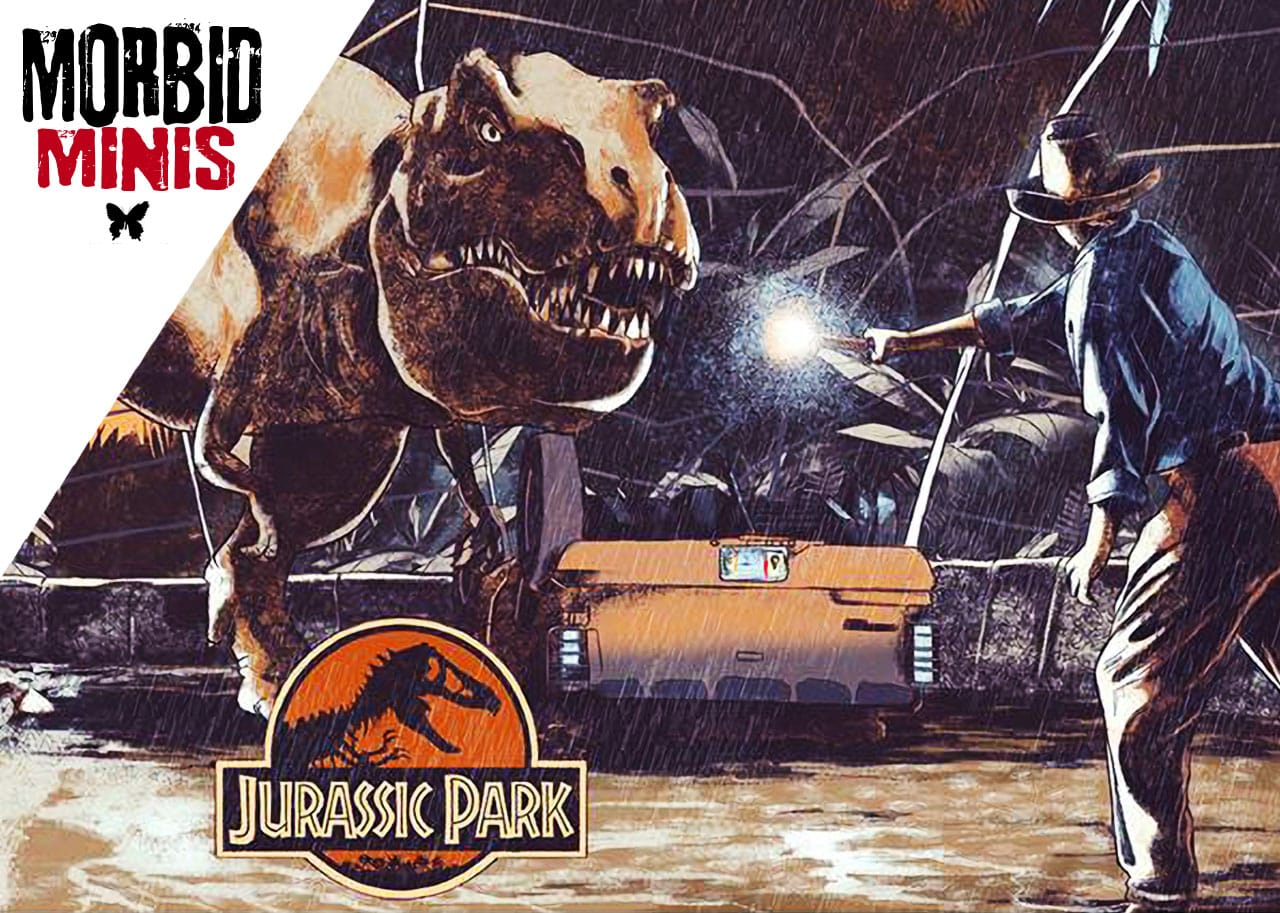
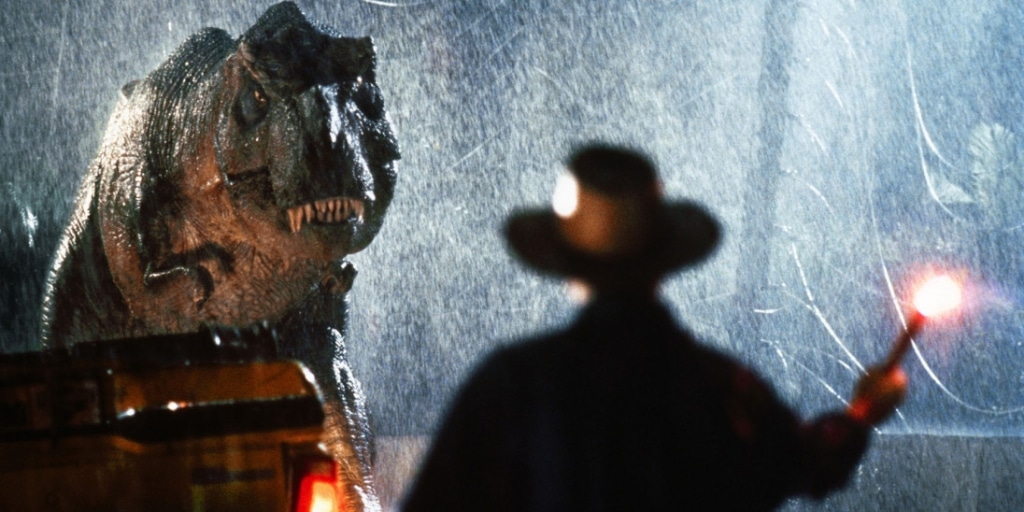
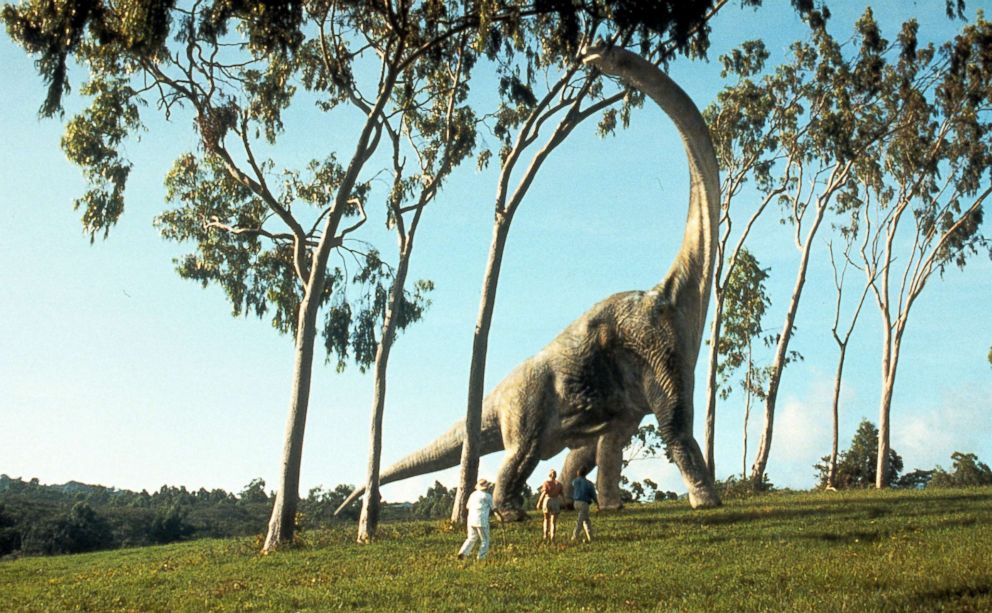
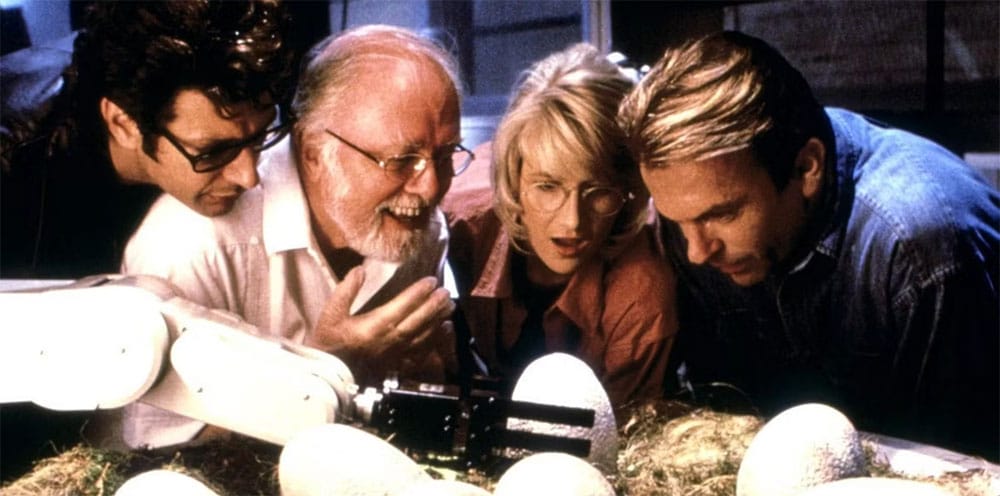
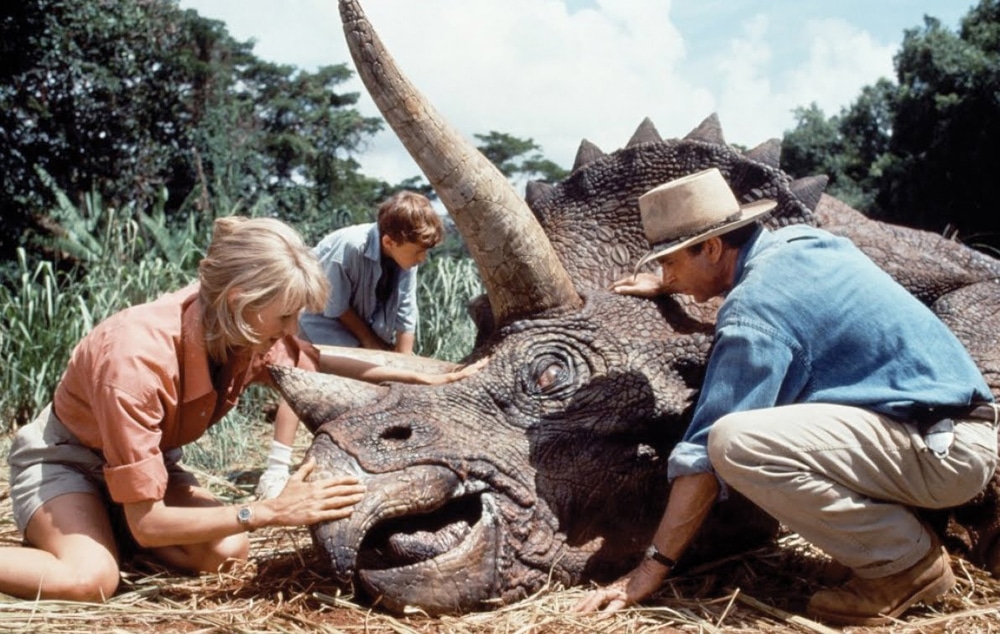
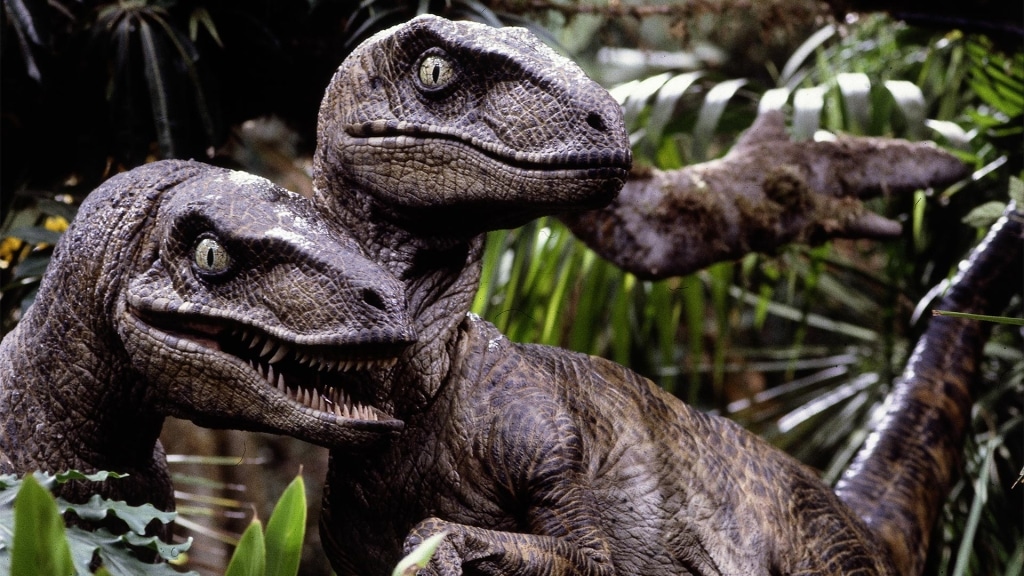
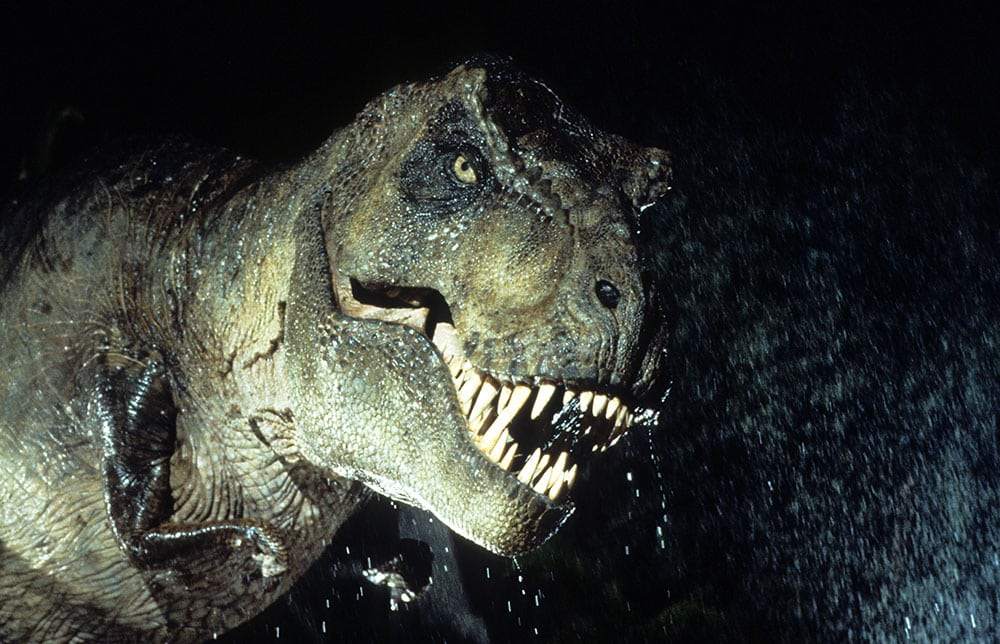
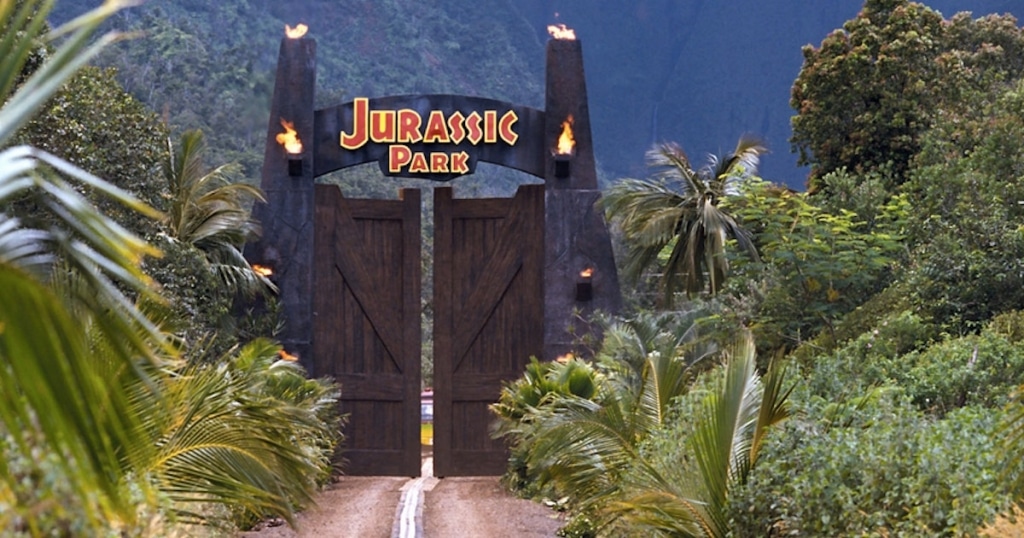
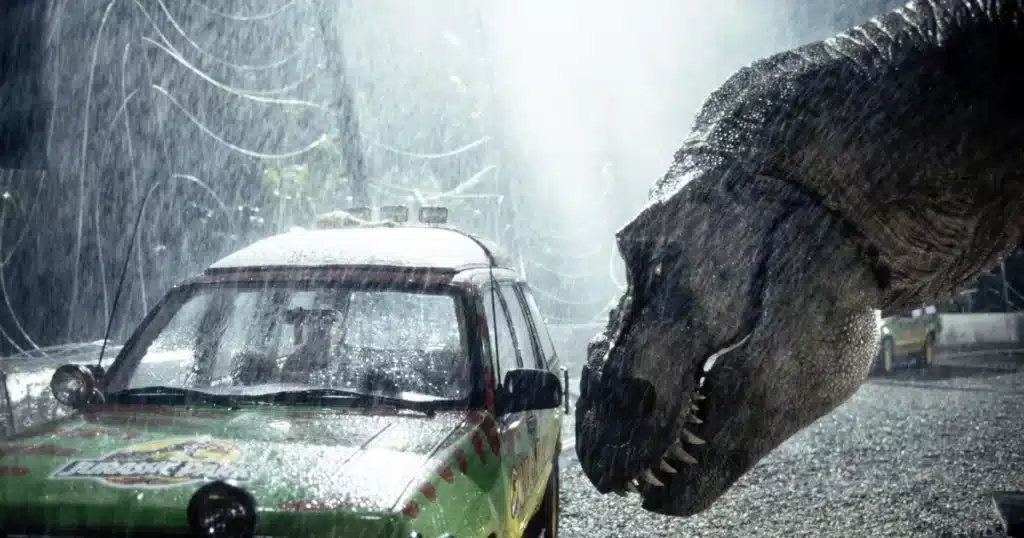
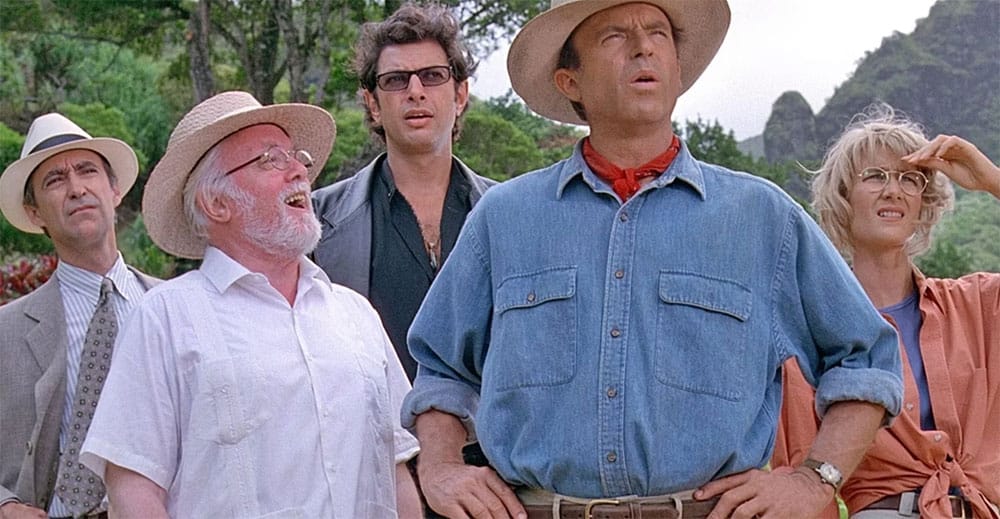
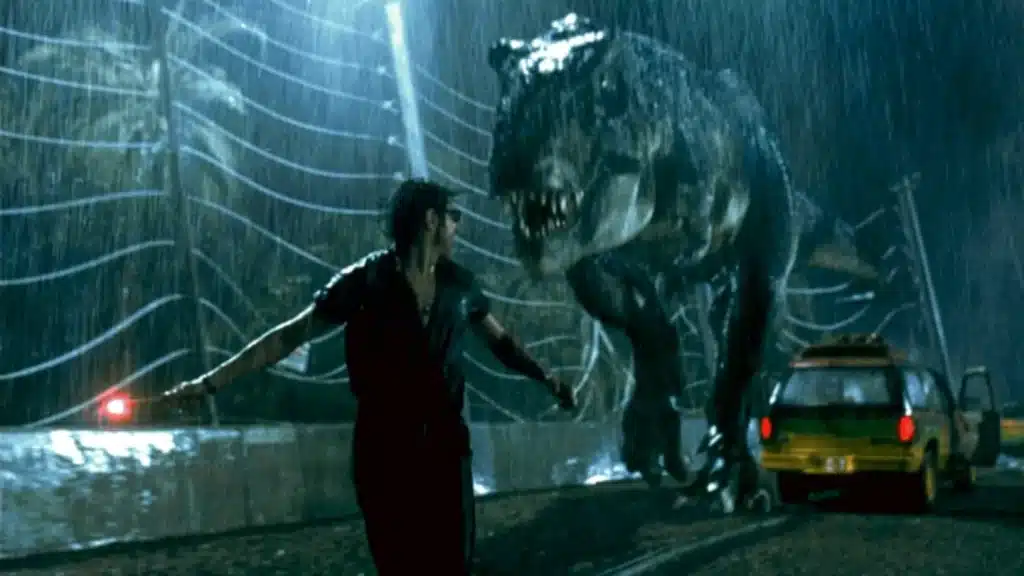
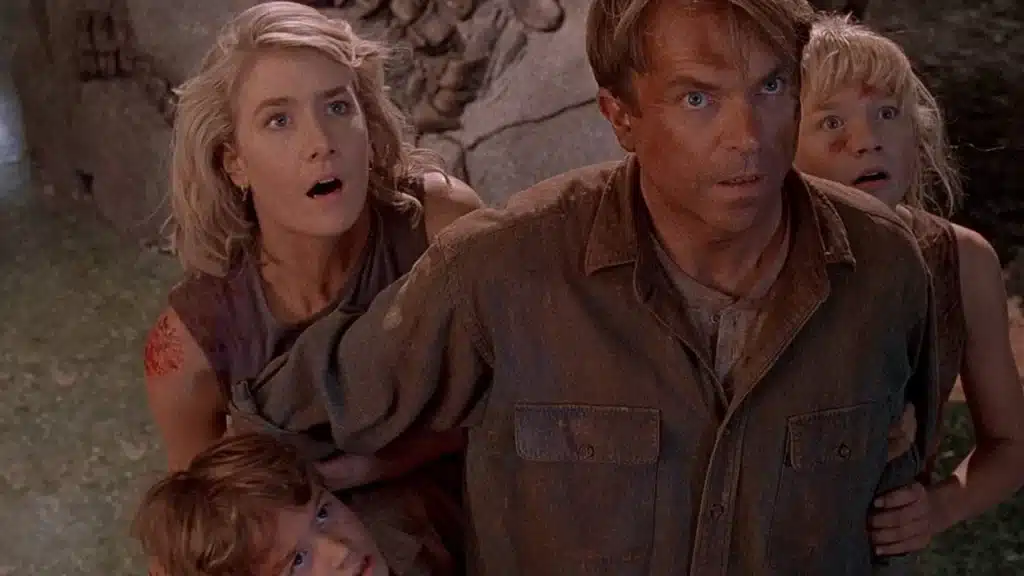
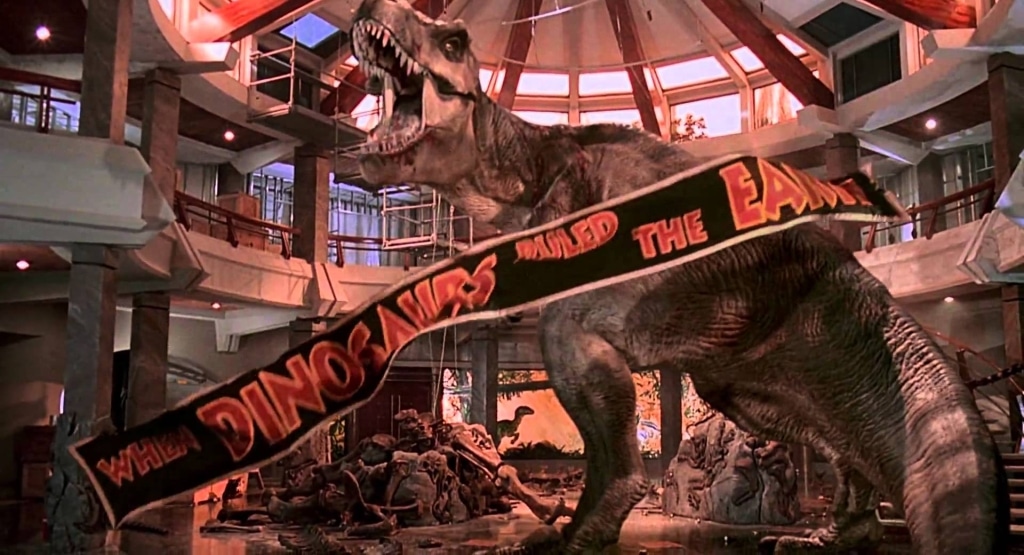

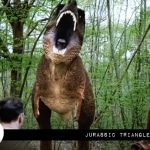







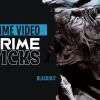


Follow Us!